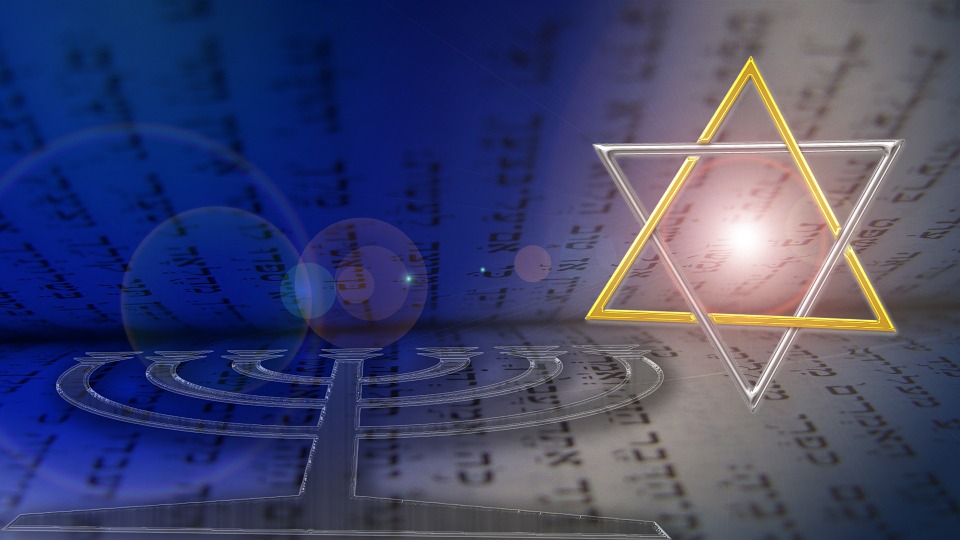When you feel under attack, you’re not inclined to think big. You’re more consumed with immediate threats.
The Jewish world these days is feeling under attack. Whether it’s the rise of anti-Semitism on all sides, the continued assault of BDS or an intersectionality movement that isolates Jews, the bad news keeps coming and throwing us off balance.
This is in addition to the ongoing challenge of maintaining our Jewish identity in a fast-changing and secularized culture.
The nasty business of politics, of course, has made everything worse. Many Jews process current events, including attacks on Jews, through a strictly partisan lens: How will this help my side and hurt the other side? All too many of us have become foot soldiers in a political fight to the death.
So, it’s worth asking: What would be a more effective response? How can we fight anti-Semitism in a way where the Jewish community comes out ahead?
I’d like to suggest an approach I call Big Judaism.
As much as anything, Big Judaism represents an attitude. It encourages us to think big. Most importantly, it asks us to look at what unites us rather than what divides us. It doesn’t expect us to agree with one another or change our views—that’s not the point.
The point of Big Judaism is to take a step back and look at the big picture: At a time of rising attacks on the Jewish people, how can we come together around a tradition that has nourished us for 3,300 years?
Big Judaism is about projecting strength rather than weakness. Bullies and haters feast on weakness. We must meet them with this unified message: If you hate Jews and Judaism, we will double down on both.
Big Judaism is about coming together to share our big ideas with humanity, from the serene beauty of Shabbat to the Jewish imperative to repair the world.
America is an ideal place to go big on Judaism. I know it’s popular to look at the rising anti-Semitism and pretend we’re back in pre-Holocaust days. This hyper-alarmism may be good for media ratings, but it dishonors a country that embraces our ideals and defends our rights.
For Jews right now, the axiom that “the best defense is a good offense” has never been more applicable.
A good offense means not settling for the rhythm of the victim—they hate, we call out; they attack, we call out; they spray graffiti, we call out.
A good offense means projecting pride in our Judaism whether we are attacked or not.
And when we are attacked, we must do more than “call out” or call the police. If a synagogue finds a swastika on its walls, it ought to organize a Torah rally and strengthen its Jewish programming. If Jewish students find anti-Semitic pamphlets, they ought to throw a Jewish pop-up party on campus.
Because anti-Zionism is often a cover for anti-Semitism, it must be addressed the same way—by doubling down on Judaism. The best way to defend the Jewish state is to stand up for Jewish pride.
Each denomination, each community, each Jewish group can contribute in its own way. Every Jewish holiday is an opportunity to make the values and rituals of Judaism more visible and prominent. We can’t allow armed guards in front of synagogues to become the emblem of modern-day Judaism. This shows fear and darkness at a time when we need to show strength, unity and light.
Big Judaism doesn’t mean we stop criticizing our own and holding ourselves accountable. It does mean, however, that we recognize we’re also accountable to our community to unite as a “big family” against common threats. At moments like these, it is the duty of Jewish leaders everywhere to bring us together for a higher cause.
Many of us have become so consumed with politics that it’s hard to see any higher cause. The Jew-haters are hoping we will stay this way, tearing one another apart while they continue to tear us down. Anti-semitism is indeed a threat, but a broken and splintered Jewish community is an even bigger one.
As we’ve learned throughout our history, Jew-haters don’t care whether we’re Democrats, Republicans, Sephardic, Ashkenazi, atheists, Zionists or what have you. For the haters, “Jew” is enough to treat us as one.
If “Jew” is enough for them, why is it not enough for us? With the High Holy Days around the corner, it’s time to think big. It’s time to fight back against our common threats by uniting around a Big Judaism—one that respects our differences but honors our shared heritage and destiny as a Jewish family.
Then we win no matter what.
David Suissa is editor-in-chief and publisher of Tribe Media Corp and Jewish Journal. He can be reached at davids@jewishjournal.com.
This article first appeared in the Jewish Journal.


























